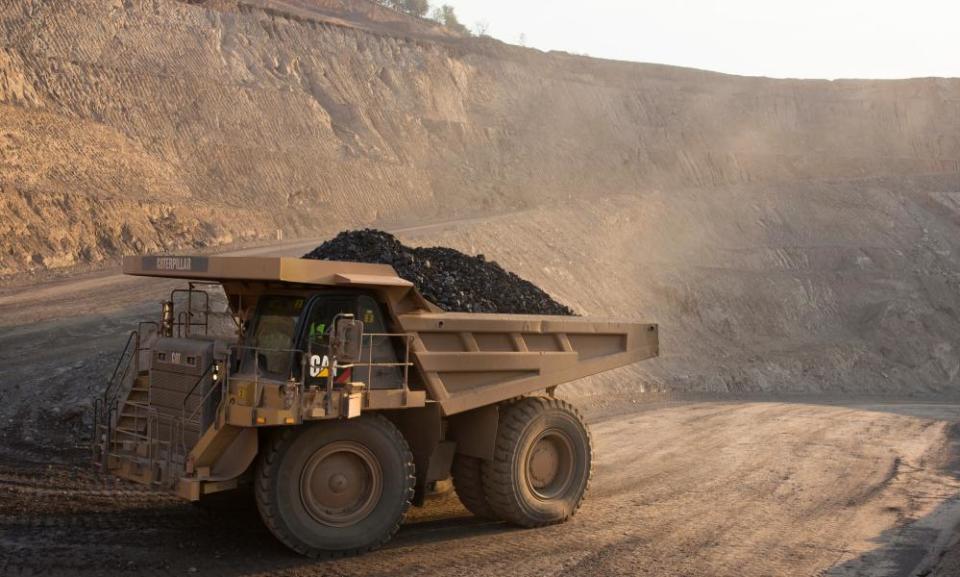Coal giant Glencore says its carbon emissions will fall 30% by 2035

Mining giant Glencore has predicted its carbon footprint will shrink by almost a third by 2035, but will not set climate targets for the company.
The company expects its total carbon emissions to fall by 30% in the next 15 years as it gradually produces less coal due to the “natural depletion” of its coal reserves.
Glencore promised investors last year it would cap its coal production, and said on Tuesday that production was expected to fall as its Colombian mines close. It may produce less coal from mines in Australia and South Africa, too.
The Switzerland-based miner has also vowed to disclose its contribution to the climate crisis and show investors how it plans to align its business with the Paris climate goals from April this year.
Glencore has yet to set a target to reduce its full climate impact because it does not include the so-called scope 3 emissions, which would take account of the emissions produced from using the coal it sells.
Ivan Glasenberg, the chief executive of Glencore, described climate targets like BP’s aim to be a “net zero” company by 2050 as “wishy-washy” because the goals are “a long way out”.
“As we rebalance our portfolio towards commodities supporting the transition to a low-carbon economy, we expect the intensity of our scope 3 emissions to decrease,” a statement from Glencore said. “Starting in 2020, we will start disclosing our longer-term projections for the intensity reduction of scope 3 emissions, including mitigation efforts.”
Related: Mining firms worked to kill off climate action in Australia, says ex-PM
The mining company’s existing targets cover its direct greenhouse gas emissions, and the emissions produced from its operations. Glencore has cut these emissions by 10% between 2016 and 2020 after promising to reduce them by 5%.
The company pledged to set out new longer-term targets that “support the Paris goals” later this year.
Glencore is the first big mining company to spell out how emissions from the coalmining sector are likely to fall over the next decade as big economies begin to choose gas over coal-fired electricity, and miners shift their attention to commodities that can help to support a low-carbon future.
Glencore said it weighted its spending last year towards “energy transition materials” such as copper, cobalt and nickel, which are used to make batteries and electric vehicles.
Demand for these materials is expected to grow rapidly as global economies use more renewable energy to power homes and cars. BloombergNEF estimates that coal’s role in the global power mix will fall from 37% today to 12% by 2050.
Glasenberg said the company was also “spending a lot of money on carbon capture” technology that could help to reduce the climate impact of coal by trapping the emissions before they can contribute to global heating.

 Yahoo Finance
Yahoo Finance 